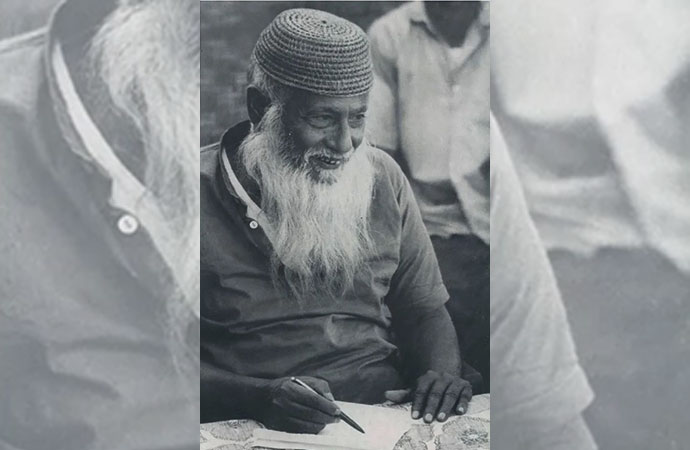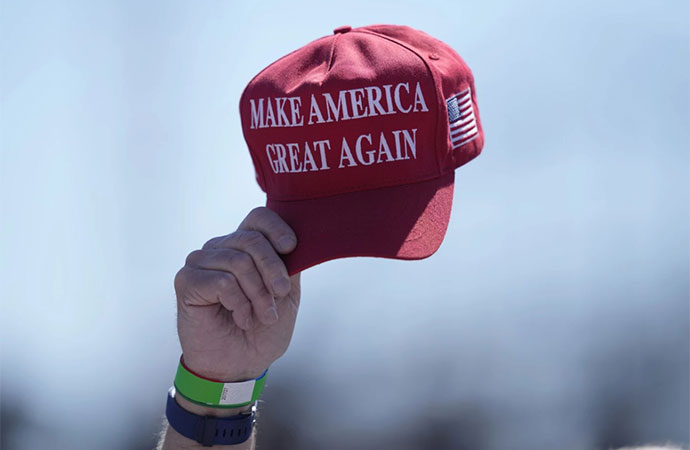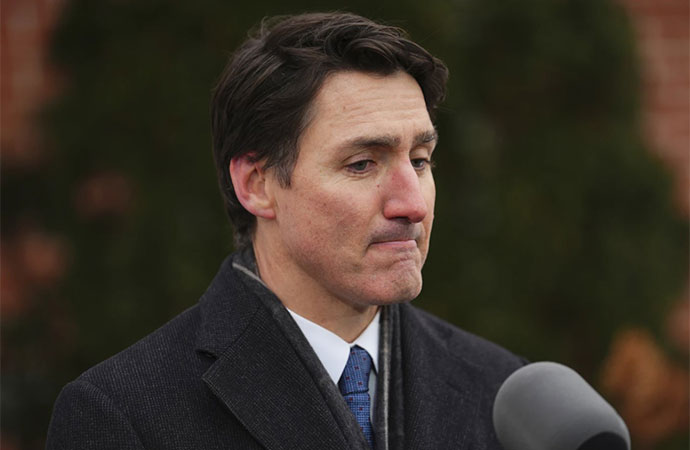Column

Abdul Hamid Khan Bhashani. Photo: Collected
Efforts to prove that Maualan Bhashani was greatly influenced by Western sourced radical ideology have been on for some time. This has some connection with his "discovery" by South Asian radicals living abroad -read 60s Leftists of the UK - who rejected the mainstream party politics of the Awami League and looked elsewhere for a hero.
They wanted to anoint him with Western ideological colours because his "radical" robes looked rather too indigenous for an international figure. It was maybe even a touch retrograde - read religious- considering that he was/is an authentic symbol of radical Left politics of South Asia. Even within Bangladesh, some of his leading followers were very loyal to Western ideologies than the tradition from which the Maualana came.
To such admirers his "redness" was/is produced from at least some interaction with Western Leftist thought. Thus Maualana's red roots had to be Westernized as in the cannons of the Leftists such ideas were squarely located in the European radical movement peaking with Marx and Engels.
Imao's example helped in such a search. Mao had studied Marx to properly analyze China politically and then give it a Chinese twist and come up with Maoism which was so successful in the victory of the Communist forces there. It went on to establish orthodox communism there too but that regime ended with the failure of the "Cultural revolution" in the 1960s. Today, China lives its own socio-economic life, a way more Chinese than Maoist/Marxist though sharing much but more responsive to public will and more successful than thought possible before.
However, with Russia throwing out socialism through the window, China is the only serious claimant to the Marxist throne left behind.
Maulana's political roots and trajectory
Bhashani's roots are located in the peasantry, a multi-class cluster and yet he was not a functioning peasant. He was close to their world but his education and activism gave him the space to negotiate with the elite on their behalf. His education is an indicator of his class culture as he travelled down the madrassa lane and not colonial education corridors to become a babu in the so-called secular world.
Western secularism based interpretation schemes can't locate him politically because his roots were distinctly in the peasant resistance world, not faith identities. It was linked to the thoughts of the resisting peasants, madrassa and religious activism of various institutions which shared common roots.
It was an alternate world of Western educated notions of "liberation" and liberalism as Maulana Bhashani never lived in those spaces. Thus his Saviour was Allah and not some Germans espousing European saviors who were held aloft by the intellectual torch bearers of Western thought in the Orient.
Marxist ideas, based on interpretation of European history and offered as the global solution made in Europe, was in many ways typically "Wahabi" universalist in nature, prescribing a global solution to the world's woes. However, in the East, the peasant was always more practical and behaved accordingly.
The streams that the socialists swore to were fundamentally European in nature but Maulana Bhashani ideas of social justice were located in historical "Islam" of the region, more practiced than idealistic. It was not theological but social. It was in many ways homegrown that took peasant aspiration to a militant level using class alliances as a strategic tool. It was basically an anti-poverty political plan.
Under colonialism, the peasantry chose those messages which suited them and remained theologically uninterested all through. For them it's access to better livelihood that acted as their functional theology rather than any dogmatic prescriptions of the Western or the MIddle Eastern world.
Maualana, Marx and Mao +
Many Bangladeshi pro-Peking politicians have claimed that the Maulana was influenced deeply by Marxism and autobiography type volumes always mention this. This is common among South Asian leftists who have little to show in terms of producing a public figure who has had large scale social impact. Thus the Maualana is the only important Leftist figure in Bangladesh and Marxism is the only chain that can link them and claim credit. If Leftists are to survive psychologically, they need the Maulana which is why the desire to anoint him with the same coloured robe they themselves wear and wore.
What they don't realize is that the Maulana didn't need them. He was committed by faith to work on his cause so the need for followers was not an issue. And he more often than not chose the hated Awami league if it suited him as 1968, 1970 and 1971 shows.
Nor did he ever seek power seriously and even during the 50s and 60s, his most active zone in life, he never sought power even though he could claim a chunk of it. And that is because the idea of power for him lay with Allah not the State. Unlike the Marxist Left he didn't need the State. What he needed was more space for society to flourish.
The search for the Maulana's roots will go on from many angles but what seems both odd and natural is that the global history of peasant consciousness, their capacity in forming multi-class alliances and their lack of interest in grabbing State power are elements that is shared globally but rarely studied in discourses on the man and his constituency, locally or internationally.

























Leave a Comment
Recent Posts
Pedaling Through the Mangroves ...
The journey from the bustling streets of Barishal to the serene, emera ...
Why the Interim Government mus ...
Two weeks out from what is expected to be a red letter day in the figh ...
Doesn’t matter who thinks what about Bangladesh deci ..
The Other Lenin
US President Donald Trump said his administration
Govt moves to merge BIDA, BEZA, BEPZA, MIDA